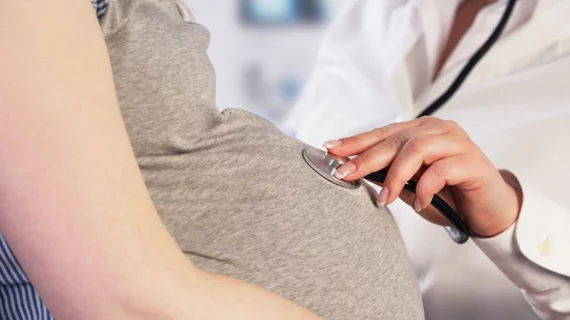AAPM: Patient gonadal and fetal shielding unnecessary during x-rays
Patient gonadal and fetal shielding is not necessary during x-rays and should be discontinued, according to a new position statement issued by the American Association of Physicists in Medicine (AAPM).
“Patient shielding may jeopardize the benefits of undergoing radiological imaging,” the statement read. “Use of these shields during x-ray based diagnostic imaging may obscure anatomic information or interfere with the automatic exposure control of the imaging system. These effects can compromise the diagnostic efficacy of the exam, or actually result in an increase in the patient’s radiation dose.”
If the patient, or the patient’s guardians, act afraid or anxious and the healthcare provider believes such shielding can help ease those fears, it can still occur during that specific examination. But, according to the AAPM, current evidence does not support policies that require such shielding in any other scenarios.
Radiology Business spoke with Mahadevappa Mahesh, MS, PhD, chief physicist for Johns Hopkins Hospital in Baltimore, Maryland, about this position statement. Mahesh also currently serves as AAPM’s treasurer.
“With all of this new technology, having a shield at the back of the beam can actually increase the radiation dose to the patient and jeopardize image quality,” he said. “And research shows that gonadal and fetal shielding does not provide any benefit to the patient’s health.”
Prior Radiology Business coverage related to patient shielding policies can be read here and here.

